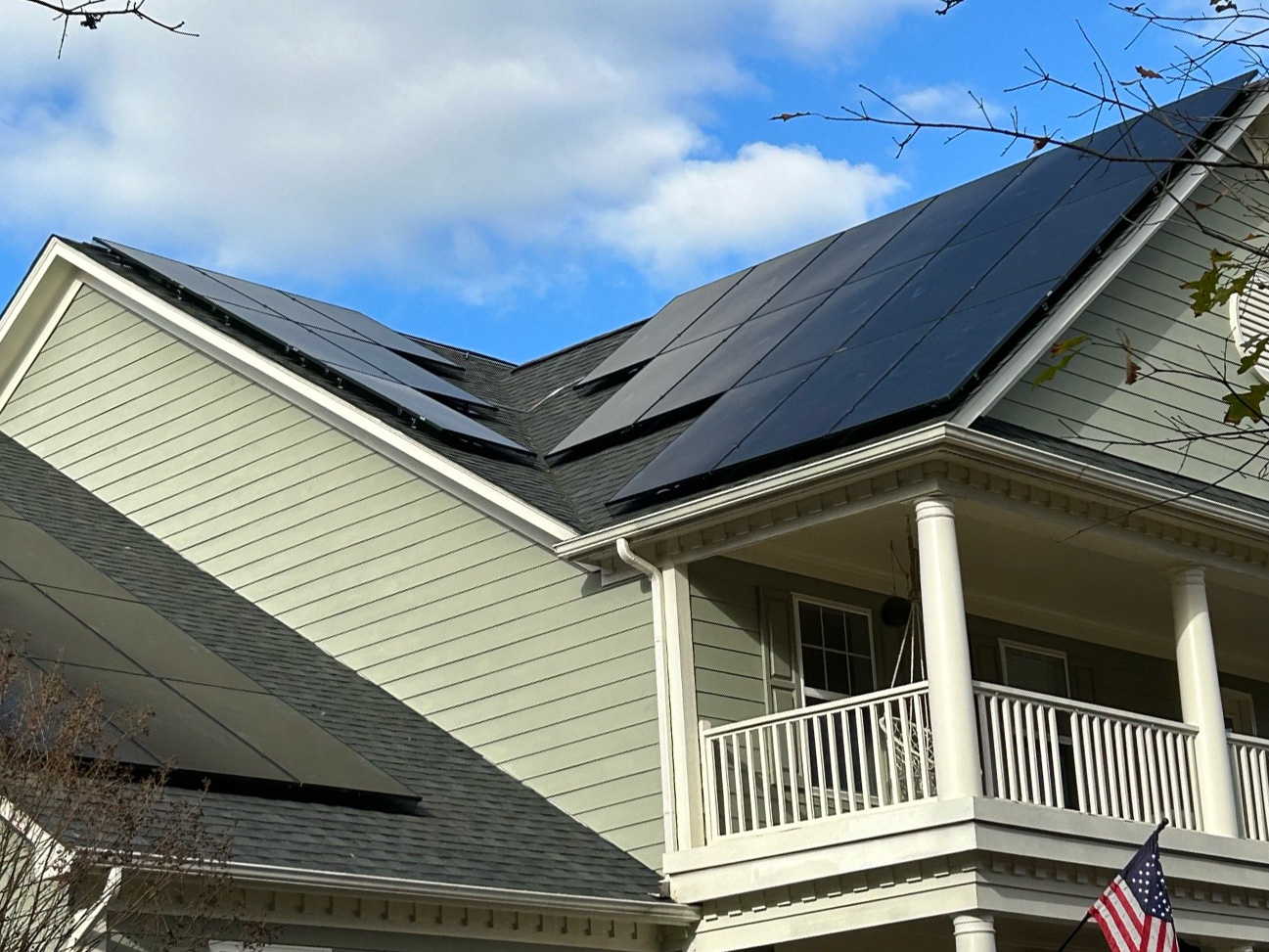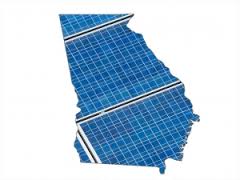 The value of solar power just got a huge boost thanks to the Georgia Public Service Commission. For the first time in state history, Georgia Power customers that install solar panels for their home or business can get full retail credit for energy sent back to the utility! The new policy is capped for the first 5,000 customers or 32MW, whichever comes first. Program details are being worked out now and we will update you when we learn more.
The value of solar power just got a huge boost thanks to the Georgia Public Service Commission. For the first time in state history, Georgia Power customers that install solar panels for their home or business can get full retail credit for energy sent back to the utility! The new policy is capped for the first 5,000 customers or 32MW, whichever comes first. Program details are being worked out now and we will update you when we learn more.
What It Means: Instant vs Monthly Netting
If your solar panels produce more power than you need at any given time, you can sell that extra energy back to the utility. Currently, Georgia Power will instantly credit power sent back to their grid at around 3 cents per kWh, a fraction of the retail rate. Depending on your lifestyle and usage patterns this can happen quite often, especially during the day when solar generates the most and parents are at work and kids are at school. With retail rates averaging 12 cents per kWh, it makes sense to send back as little as possible by either sizing the solar array small enough to not send a lot of energy back to the grid or investing in a battery storage unit in order to store excess energy during the day and use it at night.
All this changes soon when the new "monthly netting" policy takes effect! With monthly netting, instead of Georgia Power instantly netting excess power sent back to their grid at 3 cents per kWh, Georgia Power will now net what you consume and what you send back at the end of the month, giving customers full retail credit for excess energy and dramatically reducing electricity bills. Monthly netting is a form of net metering except if generations exceeds consumption at the end of the month then customers will get 3 cents per kWh for that excess energy.
Sign up now with Solar Crowdsource to get program updates, get in on the new "monthly netting" program, and save up to 20% on the cost on solar by participating in one of our Solarize group purchase, discount pricing programs coming up soon in 2020!
There's no obligation by signing up and we do not sell or share your information.
How It Works: More Savings on Electricity Bill
The new "monthly netting" program is NOT net metering but does contains elements of net metering. After installing solar, you're still connected to the grid so during the month you're both purchasing energy from the utility and selling energy back to the utility. To understand how the "monthly netting" program will work, we've come up with a few examples to help:
Example #1: You purchase 1,000 kWh of electricity from Georgia Power and send back 500 kWh of excess solar power. Here's how it breaks down:
Old Policy: Georgia Power would charge you for 1,000 kWh at 12 cents per kWh = $120 and credit you for the 500 kWh at 3 cents per kWh = $15. You would then be billed $105 for the month.
New Policy: Georgia Power nets the energy flows at the end of the month 1,000 - 500 = 500. Then bills the retail rate for the difference at 12 cents per kWh. You would then be billed $60 for the month (500 x 12 cents = $60). Difference of $60 per month!
Example #2: You purchase 1,000 kWh of electricity and send back 1,000 kWh of excess solar power.
Old Policy: Georgia Power would charge you for the 1,000 kWhs at 12 cents = $120 and credit you for the 1,000 kWh sent back = $30. You would then be billed $90 ($120-$30 = $90)
New Policy: Your charge for energy used is zero (1,000 - 1,000 = 0). Other than base service charges, taxes and any other fees that apply, you would pay nothing for the energy use portion of your bill. Difference of $90 per month!
Example #3: You purchase 1,000 kWh of electricity and send back 1,500 kWh of excess solar power.
Old Policy: Georgia power would charge 1,000 x 12 cents = $120 and credit you for the 1,500 kWh sent back $45. You would still be billed $75 event though you sent back more than you used.
New Policy: 1,000 kWh used - 1,500 kWh sent back = -500 sent back. Georgia Power would then credit you the excess power at 3 cents or 500 kWh x 3 cents = $15. Not only would you owe nothing for the energy portion of your bill, but you would actually get a credit of $15 that rolls over into the next month! Difference of $90 per month!
These examples are simplified to illustrate how the new policy works but no matter what scenario you consider, the value of a solar energy system has increased dramatically and translates into more savings on electricity bills for homes and businesses in Georgia. Example #1 is the most common scenario for Georgia homeowners. With the new policy, you can size your solar array larger than before to offset more energy purchased from the utility and save more because you're getting retail credit for energy you send back. The grid essentially becomes your virtual battery storage unit reducing the need for the extra expense of a battery.
Old Policy vs. New Policy - By the Numbers
Here is a snapshot summary of the total value of the new policy change for a 6kW residential system which is an average sized system in Georgia. As you can see, the new policy can add up to an additional $400 per year in savings and over $10,000 during the 25-year production warranty period of the solar modules.

For Existing Georgia Power Solar Customers
Existing Georgia Power customers that already have solar are presumed eligible for the new program. We are waiting from Georgia Power for any rules, applications, and procedures required. Once we learn more, we'll send out an update so stay tuned!
About the author: Don Moreland founded Solar Crowdsource in 2016 to help make distributed solar more affordable and accessible for homes and businesses. To date, Solar Crowdsource has facilitated 10 Solarize programs originating over 500 installations, 3.5Mw of new solar capacity, and 1.5MwH of new battery storage. Solar Crowdsource's award winning Solarize programs were recently named a Solar Maker by Southern Environmental Law Center. Don served as Chair of the Georgia Solar Energy Association (GA Solar) for 2017 and 2018 and currently serves as the organization's Policy Committee Chair. Donate to GA Solar to support the Georgia solar industry. Email Don: don@solarcrowdsource.com.





